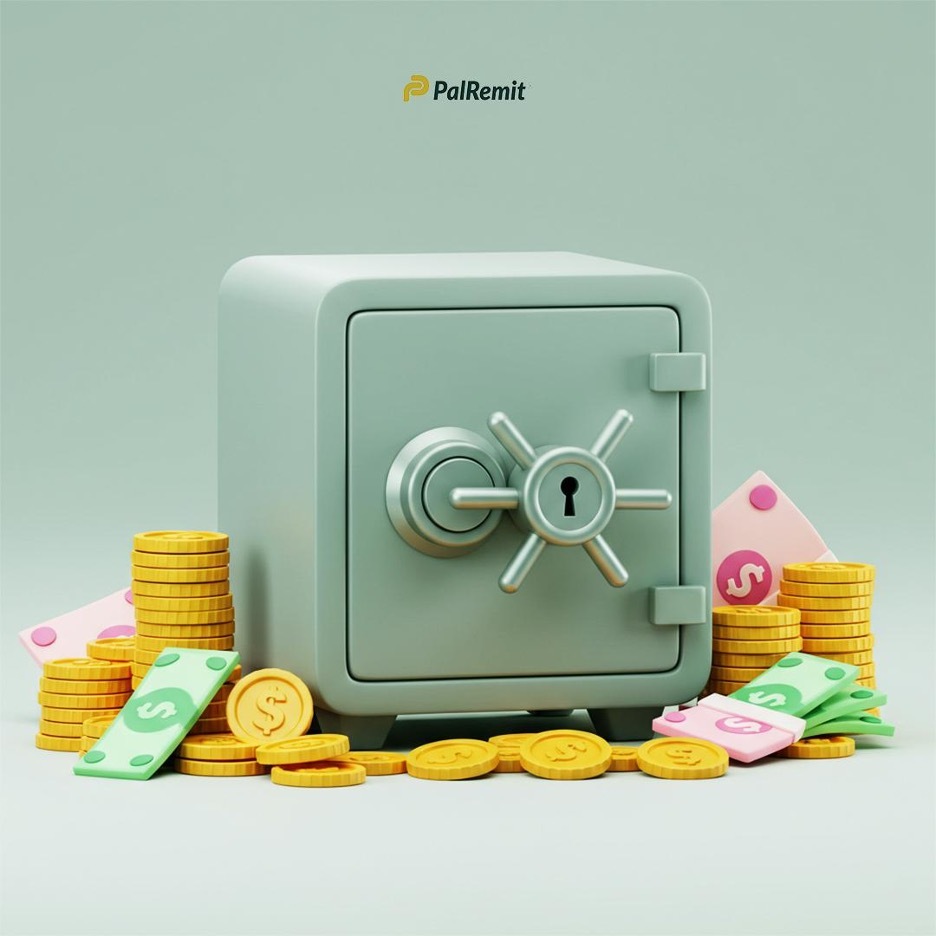How to Secure Your Money During a Currency Crisis

Across Africa, the value of money is shifting downwards. From Nigeria’s naira to Ghana’s cedi, Kenya’s shilling to Egypt’s pound, local currencies have been falling hard against the dollar. In some cases, more than 50% of their value has disappeared in just a year.
Such a loss not only affects governments but also families, freelancers, small business owners, students, and others. When the currency in your country starts crashing, saving becomes a race against time. What used to buy groceries now barely covers transport. If your money is sitting idle in a weakening currency, it is quietly losing value by the day.
In this article, we will show you practical ways to secure your money during an African currency crisis, from smarter conversions to global account access, and the digital tools that can help you stay ahead of the next drop.
What Is a Currency Crisis and Why Is It Happening So Often?
A currency crisis happens when a country’s currency rapidly loses its value against stronger foreign currencies such as the U.S. dollar or euro. This often leads to:
-
Surging inflation
-
Scarcity of foreign exchange (FX)
-
Skyrocketing prices of imported goods
-
A widening gap between official and black market exchange rates
Why is this happening across Africa?
-
Heavy dependence on imports (fuel, food, machinery)
-
Declining foreign reserves
-
Global economic pressures (for example, U.S. interest rates and oil
prices)
-
Political instability or poor fiscal management
Eg. In Nigeria, the naira officially trades at ₦1,523.67 to the dollar, but on the black market, it goes for even more. In Ghana, the cedi has dropped by over 20% since January 2025. In Egypt, the pound was devalued three times between 2023 and 2024 alone.
What Happens to Your Money in a Currency Crisis?
When a local currency crashes, the real value of your savings drops dramatically, even if the number in your account remains the same. This is what it looks like in everyday life:
-
₦10,000 / KSh 1,000 / GHS 100 buys less each week
-
Inflation rises, but salaries often remain the same
-
School fees, rent, and cross-border payments become unaffordable
-
FX restrictions prevent easy dollar access at banks
Holding all your money in a collapsing currency is like saving in a leaking bucket; the longer you wait, the more you lose.
Smart Ways to Secure Your Money
This is what you can do right now to protect your finances:
1. Diversify Your Currency Holdings
Do not keep 100% of your money in your local currency. If your currency is unstable:
-
Convert part of your savings into USD, EUR, or a stablecoin such as
USDT (a cryptocurrency pegged to the dollar).
-
Spread your funds across multiple channels to reduce risk and
preserve value during a currency crisis. These include mobile wallets, digital USD accounts, and stablecoins such as USDT or USDC, which are pegged to the U.S. dollar. You can also consider foreign currency bank accounts, prepaid USD cards, and trusted online remittance platforms like Palremit, which allow you to convert and store funds in stronger currencies. Some individuals also diversify through investment apps that provide exposure to foreign stocks or global markets. In rare emergency cases, holding a small amount of physical USD cash may serve as a backup, although it is not ideal for long-term protection.
This creates a hedge against devaluation. If your local currency drops, your dollar holdings retain value.
2. Convert Early, Not Late
Many people wait too long to act, then rush to buy dollars when it is already expensive.
-
Start converting small amounts consistently
-
Watch trends and act before panic drives rates up
-
Avoid last-minute black-market rates
3. Use Platforms That Offer USD or Global Account Access
With banking limits and FX scarcity in many African countries, digital platforms now offer better access than traditional banks. Platforms such as Palremit allow you to:
-
Swap your local currency to USDT or USD instantly
-
Hold value in a stable digital wallet
-
Send money globally without relying on unstable local FX markets
This is a safer, faster alternative to hoarding money in a volatile savings account.
4. Avoid Hoarding Physical Cash
In times of crisis, it is tempting to hold cash. However, cash:
-
Loses value faster due to inflation
-
Is riskier to store and transport
-
Has no growth potential
Use mobile wallets, crypto, or USD accounts to stay liquid without staying vulnerable.
5. Track Real-Time Exchange Rates, Not Just the Official Rate
In most African countries, the black market rate reflects the actual demand and supply.
-
Use reliable rate trackers (such as AbokiFX, Palremit’s app, or
Telegram FX bots)
-
Set alerts for key thresholds
-
Take action when a gap between official and street rates widens
significantly
When the black-market rate is rising fast, your money is already losing value.
Ready to Secure Your Finances?
Start with a safe conversion. Stay in control with Palremit.